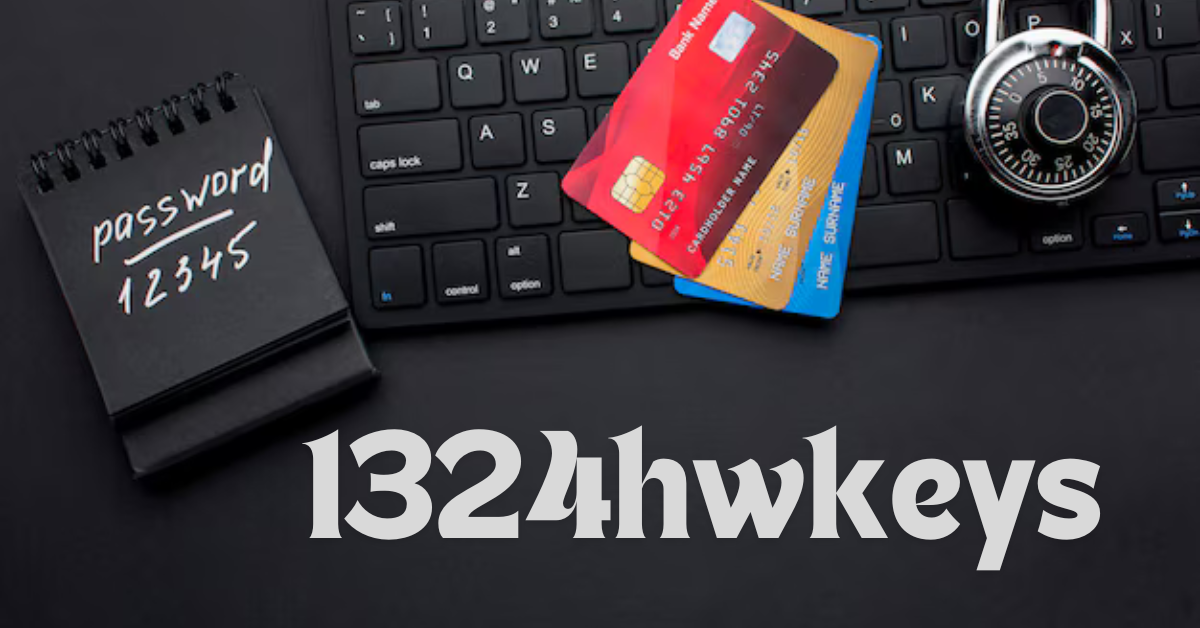The world of technology is continuously evolving, introducing new components and tools that are essential for a wide variety of tasks. One such component, often found in specific contexts, is 1324hwkeys. This term might seem obscure to some, but it plays a critical role in several technical operations and systems. Understanding the nuances of 1324hwkeys can help individuals navigate specific challenges in hardware management, secure systems, or other areas where it’s applied. In this article, we’ll delve into the importance of 1324hwkeys, its applications, and its place in the modern technological landscape.
What Exactly Are 1324hwkeys?
At its core, 1324hwkeys refers to a particular set of hardware keys used in a variety of technical and computing applications. These keys might be utilized in firmware, encryption systems, or even within the infrastructure of certain software applications. While its exact use can vary depending on the context, the general function remains consistent: to provide secure, reliable access or interaction with a specific system or software.
Typically, hardware keys like 1324hwkeys are used to prevent unauthorized access or to ensure that only legitimate users can interact with a particular system. These keys may also be involved in validating users during a process, ensuring that certain actions or operations can only be performed by those with the correct credentials.
Applications of 1324hwkeys in Modern Technology
The importance of 1324hwkeys becomes evident when we explore their applications. These keys are frequently embedded within hardware devices such as smart cards, USB tokens, or secure boot mechanisms. Their primary role is to ensure that a system remains protected from potential threats or unauthorized alterations. The uses of these keys span across multiple sectors, including:
These are just a few examples of how 1324hwkeys are applied in everyday technology. As systems become more complex and security concerns increase, the demand for robust hardware-based keys grows.
How 1324hwkeys Improve System Security
One of the standout features of 1324hwkeys is their role in improving system security. By using a physical key that’s required for certain processes or interactions, systems can significantly reduce the likelihood of unauthorized access. This is particularly crucial in environments that handle sensitive information, such as financial systems or healthcare databases.
Hardware-based security mechanisms like 1324hwkeys offer a higher level of protection compared to traditional software-based solutions. Since the key is physically embedded in a device and is not easily replicated, it is much harder for malicious actors to bypass security protocols. Furthermore, because they operate on a physical level, these keys are more resistant to common cyberattacks like phishing or malware infections.
Challenges of Implementing 1324hwkeys
Despite their many benefits, there are also challenges associated with implementing 1324hwkeys. For one, these keys are typically tied to physical devices, which can sometimes create logistical challenges. If a key is lost or damaged, it could result in system downtime, loss of access, or delays in performing critical tasks.
Another challenge involves compatibility. 1324hwkeys may need to be specifically designed to work with particular systems, and this can increase complexity in development and integration. Additionally, maintaining and managing hardware keys across large-scale systems can require significant resources, especially in environments that use a high volume of keys.
The Future of 1324hwkeys in the Technological Landscape
Looking ahead, the role of 1324hwkeys in technology is likely to expand even further. As cybersecurity threats continue to evolve and the demand for secure systems grows, the need for hardware-based security solutions will become more critical.
Technologies like the Internet of Things (IoT), blockchain, and cloud computing are also driving the need for advanced security mechanisms. In these environments, 1324hwkeys could become integral to securing communication between devices, protecting stored data, and preventing unauthorized access to cloud services.
Moreover, as the development of smart cities, autonomous vehicles, and more connected ecosystems takes shape, the use of 1324hwkeys could be central to ensuring that these systems remain safe from cyberattacks and data breaches.
Why 1324hwkeys Are Crucial for Businesses
For businesses, adopting 1324hwkeys can be a game-changer. Whether it’s protecting financial transactions, securing intellectual property, or managing a large network of connected devices, these keys provide an additional layer of defense against malicious actors. By using 1324hwkeys, businesses can ensure that their most valuable assets are protected and that their customers’ data remains safe.
In industries like finance, healthcare, and government, where data breaches can lead to severe consequences, the use of 1324hwkeys is not just an option—it’s a necessity. By embracing this technology, businesses can protect themselves from financial loss, reputational damage, and legal consequences.
Best Practices for Using 1324’hwkeys
To make the most out of 1324’hwkeys, there are several best practices that organizations should follow:
Regular Updates: Ensure that hardware keys are updated regularly to maintain compatibility with new software and security patches.
Proper Storage: Store 1324hwkeys in secure locations, and implement policies to track their usage to avoid loss or theft.
Backup Keys: Have a backup plan in place, such as duplicating keys or using secondary authentication methods, to ensure that access isn’t lost in case of key failure.
User Training: Educate employees on the importance of hardware keys and how to handle them securely to prevent accidental exposure or misuse.
By following these best practices, businesses can maximize the effectiveness of 1324hwkeys and ensure that they continue to function as a critical part of their security infrastructure.
Conclusion
To sum up, 1324’hwkeys are a crucial part of contemporary security systems since they provide strong defense against intrusions and online attacks. These keys will become ever more crucial as technology develops, especially in sectors where data security is critical. People and organizations can better prepare to include 1324hwkeys into their security frameworks and make well-informed decisions on their implementation by being aware of their applications, benefits, and drawbacks.
Knowing and using 1324’hwkeys is a first step toward creating safer, more secure systems for anyone working in industries like cybersecurity, software development, or hardware engineering. Hardware keys will become an essential weapon in the battle against cybercrime and data breaches as their function in safeguarding digital ecosystems continues to develop.
Frequently Asked Questions (FAQs)
What is the purpose of 1324hwkeys?
1324hwkeys are used in various systems for secure authentication and encryption, ensuring that only authorized individuals can access protected data or systems.
How do 1324hwkeys enhance security?
These keys act as physical barriers to unauthorized access, providing a higher level of security than traditional software-based solutions.
Can 1324hwkeys be replicated?
No, these hardware keys are designed to be unique and difficult to replicate, making them highly secure.
Are there any challenges with 1324hwkeys?
Yes, challenges include the potential for loss or damage to the keys and the need for compatibility across various systems.
Why are 1324hwkeys essential for businesses?
They offer an additional layer of protection for sensitive data, ensuring that businesses can avoid security breaches and legal consequences.
How can businesses implement 1324hwkeys?
Businesses can integrate these keys into their systems, ensuring regular updates, secure storage, and employee training to maximize security.











